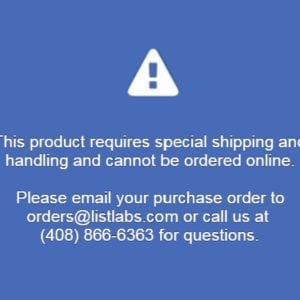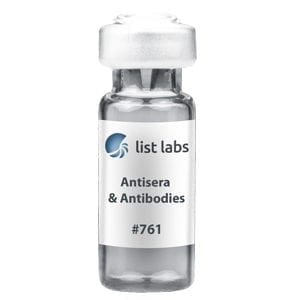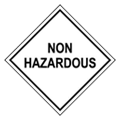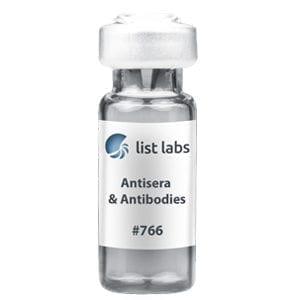Have a specific question about your LBP project? Click below and let’s get started.
Shiga Toxins
Buy Shiga Toxins
- Products
- Information
- Related Citations
- Related Blog
#161 (10 ug)
$600.00
#162L (Liquid)
$955.00
Shiga Toxins
Shiga toxins, also called verotoxins, consists of two domains: the A polypeptide confers the activity, and the B polypeptide pentamer confers the receptor-specific binding. The A polypeptide has an N-glycosidase activity that cleaves an adenine from the 28S rRNA of the 60S cytoplasmic ribosome. This activity renders the 28S rRNA unable to interact with the elongation factors EF-1 and EF-2, thus inhibiting protein synthesis. The B polypeptide forms a pentamer that binds to the eukaryotic cell receptor globotriaosylceramide (Gb3). Shiga toxins then enter the cells by receptor-mediated endocytosis.
Once the Shiga toxins have been endocytosed, they are retrogradely transported through the Golgi apparatus to the rough endoplasmic reticulum where they effectively target the ribosomes. In addition to inhibiting protein synthesis, Shiga toxins induce cytokines such as interleukin-1, interleukin-6, and interleukin-8. They have also been shown to induce expression of tumor necrosis factor (TNF), induce F-actin depolymerization, and activate a Src kinase.
The effects of Shiga toxin 1 and Shiga toxin 2 have been shown to vary with cell type because Gb3 receptors are present in certain tissues, particularly sensory neurons and renal cells. In those cell types, the receptor concentration and binding is modulated by factors such as tumor necrosis factor (TNF), interleukins, and fatty acid content of the membranes. Shiga toxin 1 and Shiga toxin 2 differ in their effects on various tissues. However, they have both been shown to induce apoptosis in several different cell types.
Shiga toxin 1 and 2 provided by List Labs are recombinantly expressed in E. coli and are highly purified. Shiga toxins are very toxic and should be handled with extreme caution.
- Product #161 Shiga Toxin 1, recombinant from E. coli, is provided lyophilized in PBS buffer.
- Product #162 Shiga Toxin 2, recombinant from E. coli, is provided as a liquid in a Tris buffer solution.
Shiga Toxin Antibodies
Rabbit polyclonal antibodies to Shiga Toxin 1 and 2 are provided by List. Anti-Shiga Toxin Camelid Antibody, which is a heterotetramer VHH that recognizes both Shiga Toxin 1 and Shiga Toxin 2, is also available. Anti-Shiga Toxin 1 or Anti-Shiga Toxin 2 Antibody, when paired with the Anti-Shiga Toxin Camelid Antibody, can be used in a standard sandwich ELISA.
- Product #761 Anti-Shiga Toxin 1 (Rabbit), IgG is provided as a frozen liquid in PBS buffer solution.
- Product #765 Anti-Shiga Toxin 2 (Rabbit), IgG is provided as a frozen liquid in PBS buffer solution.
- Product #766 Anti-Shiga Toxin Camelid Antibody, VHH is provided as a liquid in PBS buffer solution.
July 23, 2018
By: douano@listlabs.com
By: Mary N. Wessling, Ph.D. ELS In this blog we will unravel the terminology describing bacterial toxins. In general, there are at least three ways that bacterial toxins are described in the literature: by their biological designation—the genus and/or species from which they come by the origin of the toxin, either as innate to the […]
January 23, 2018
By: douano@listlabs.com
By: Rachel Berlin, Marketing Manager List Labs is proud to be exhibiting at ASM Biothreats February 12-14th. The conference will be held in Baltimore, Maryland at the Hilton Hotel. Thought leaders in academia, industry and government will gather to present and discuss the latest developments in the emerging field of biothreats. This year’s conference has […]
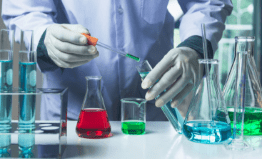
March 16, 2015
By: List Labs
By: Suzanne Canada, Ph.D. Tanager Medical Writing While you go about your day, you are surrounded by micro-organisms. Although most of us spend a lot of time washing up and trying not to think about the propensity of creatures that share our personal space, scientists have been studying them. Due to their great progress, we […]
January 26, 2015
By: List Labs
By: Suzanne Canada, Ph.D. Tanager Medical Writing An exciting report was released in October about a new class of targeted anti-tumor drugs, in which genetically engineered stem cells were used to deliver cytotoxins to brain tumors.1 Brain cancers known as glioblastomas (GBM) are notoriously difficult to treat because the tumors often re-grow after surgery and because […]
March 18, 2014
By: dpinkston@listlabs.com
Shiga Toxins May be Purchased without Government Approval The CDC has removed Shiga toxins (Stx1 and Stx2) from the list of materials requiring oversight. As a result, Shiga Toxins are no longer classified as select agents and may be purchased without government approval for your research and investigative needs. While Shiga toxins carry fewer restrictions, […]
List Labs
540 Division Street
Campbell, California
List Biotherapeutics
9800 Crosspoint BIvd Suite 2011
Indianapolis, IN 46256, USA


- © 2025 List Biological Labs, Inc
- Privacy Policy
- Terms of Use
- Cookie Preferences

